- Home
- Joel Rosenberg
Guardians of the Flame - Legacy Page 14
Guardians of the Flame - Legacy Read online
Page 14
No, that wasn't true, on both counts: It wasn't Doria's face, not anymore; and there was an expression, but it was a distant, icy one, no trace of humanity in the chiseled cheekbones, in the thin lips, in the camera-eyes.
"Doria?" He reached for her, but her hands blocked him easily.
"Walter Slovotsky," she said in a voice that he had never wanted to hear again, "you must go now. There is nothing you can do for your friend here."
It was the airy but powerful voice of the Matriarch of the Healing Hand, only barely diminished in strength as it issued from Doria's lips.
"You must go now," she repeated.
"But—"
"Now."
For just a moment, Doria peered out through the fleshy mask. "Please, Walter, go."
And then she was gone, as the Matriarch reclaimed her. "Go. Or need I compel you?"
A snarl forced itself to his lips. But he didn't do anything. There was nothing he could do.
"I'll leave," he said, addressing his friend, ignoring the Matriarch, who had appropriated her body. "Doria, be well." He touched his fingers to his lips and then brought them to hers. "Farewell, old friend," he said. "Until we meet again. And we will meet again."
He turned and left, without a glance back.
* * *
At sunset, he met the others at the filthy inn where they had taken a small room for the night. The walls and floor were covered with roaches, and he could hear the skittering of rats in the walls. They could have afforded better accommodations—an inn that charged enough so that the owner could afford hiring a Spidersect cleric to use a death spell on the vermin but conspicuous consumption would not have been in accord with their cover as merchants.
He was the last one to make it to their room. Ahira was stretched out on his bedding, his eyes half closed, while Aeia and Bren Adahan were going over a map of the town that they had scratched into the dirt floor.
"Hi, all," Walter Slovotsky said, pleased to note that his voice came out more casual than he felt. "Any luck?"
Aeia shook her head. "No. And we've covered the whole town, as far as I can tell. How about you?"
Ahira had caught something in his voice. "What is it? Jason?"
Walter shook his head. "No sign. But I did see Doria."
The dwarf hid his surprise well. "How is she?" he asked, perhaps a little too casually.
"Okay." Walter shrugged. "She doesn't seem to be hurting. And I don't think any of us ought to go back and see her—it seems she's been reassigned, and . . . we'll talk about it later." It didn't seem right to discuss Doria in front of these kids; this was a matter for the original group, and maybe not even all of them.
Ahira nodded. "Agreed. You didn't find any sign of him?"
"I found the guard he talked to on his way into town. From what he said, my best guess is that Jason's left." Slovotsky shrugged. "I move we hit the Aeryk road in the morning. If he's gone that way, we can probably catch him before we rendezvous with Ellegon."
"I agree if we don't take the Aeryk road," Bren Adahan said, "we have to pass up the rendezvous. It doesn't make sense to me to do that without good reason."
"Aeia?"
"I don't know." She shrugged her shoulders. Despite everything, Walter noticed and enjoyed how the motion was echoed under her shirt. Not that he was going to do anything but look tonight. Forgetting for the moment about the Adahan problem, a vermin-infested room didn't leave a lot of opportunity for romance.
"Walter and Bren make sense, but . . ." She shook her head. "I just don't know."
Slovotsky turned to Ahira. "It's up to you."
"I want your best guess."
The main trading road was the Aeryk road, but there were dozens of other, smaller byways Jason could have taken. Hell, he could have gone north, or even be holed up, hiding in Wehnest, or heading off across the Waste toward the Hand tabernacle.
"Spending another day in Wehnest and trying to dig up some more info might work, too." He shrugged. "Could be he talked to somebody."
Bren Adahan shook his head. "That doesn't make any sense—"
"Shut up," Slovotsky said. "It's not your call."
They couldn't take all the possible paths. The dwarf's desire to go see Doria might as well have been carved into his forehead; the obvious decision was to stay around for another day, just one more day, and then try to double-time toward the rendezvous.
But Ahira just pursed his lips. "We leave for Aeryk first thing in the morning. Now get some sleep. All of you." He looked knowingly at Walter, as though to say, You don't know me as well as you think you do.
The others probably didn't understand when Walter answered back, "Yes, I do, Jimmy."
CHAPTER THIRTEEN:
A Rumor of War
I must study politics and war that my sons may have liberty to study mathematics and philosophy. My sons ought to study mathematics and philosophy, geography, natural history, naval architecture, navigation, commerce and agriculture, in order to give their children a right to study painting, poetry, music, architecture, statuary, tapestry and porcelain.
—John Adams
Astride his mare on the crest of the hill, Karl Cullinane looked down over the carnage below.
It had been Kernat village, a small community in barony Tyrnael, insignificant to the general economy of either barony empire except for, in some years, a minor surplus of grains, and occasionally of meat animals. Nobody of any importance had ever been born there, as far as anyone knew; the closest Kernat came to a local hero was a corporal in Karl's House Guard.
It had been an unimportant little place, except to the people who lived there.
Who had lived there . . . nobody lived here anymore.
"Andy, I don't need you for this."
Her brown gelding pawed the ground as she shook her head. "Yes you do." Her fingers twisted in the reins, knuckles white in the leather straps.
Nobody lived here anymore.
It wasn't a village now.
Now, it was a charnel house. Bodies littered the streets, some gaping in surprise that death had finally overtaken them, some without faces with which to gape.
Below, a crow pecked at the eyeholes of what once had been a teenaged girl; a soldier shooed it away with the haft of his spear, then swore in remote irritation as a crossbowman raised his weapon and shot the crow out of the air, the bird twitching while it shit and bled and died on the dirt road.
Karl sympathized with both of them—this was horribly wrong—but it wasn't going to be fixed by killing the scavengers. It wasn't going to be fixed at all; there is no medicine for a life that has fled, no healing of a rotting body, lying in the dirt, stinking in the sun.
There had been no wounded; all who had not been fleet of foot and well endowed with luck had been put to the sword. There had been some looting, but not much. There could not have been much; Kernat village simply hadn't had much wealth to loot.
Nothing moved in the streets except Baron Tyrnael's soldiers, who were busy clearing the town, checking through the rubble of the stone houses and the smoking ash of the half-timber ones for either enemies or survivors.
But there were none; the raiders had long since gone.
Karl swallowed as he turned to Listar, Baron Tyrnael. "They took captives?"
"Yes." The baron nodded his head slowly, then rubbed at his tired eyes and unshaved cheeks. He clearly hadn't shaved in days; he probably hadn't slept, either. "Not many. Perhaps ten. Given slave prices these days, it would justify the raid. Perhaps. They were thorough," he said, a funereal calm in his words. "A runner tells me that there's a messenger from Lord Pugeer waiting me at home. Offering me his protection, do you think?"
"No, I don't think so." Karl shook his head, and he dismounted, handing his reins to one of his soldiers.
As he did, Danagar, who was commanding the House Guard bodyguard detail, nodded to his escort and issued a few monosyllabic commands.
The forty pairs of riflemen and gunner's mates spread out,
the riflemen with weapons at half-cock, each mate holding a loaded replacement piece, ready to either switch and reload or, if necessary, draw sword and protect the gunner while he reloaded.
It was a matter of discipline, not necessity; the killers were long since gone.
Andrea gestured with her right hand, an awkward motion that spoke more of magic than anything else. "I can smell the power."
He nodded. The fact that there were no escapees clinched it—even a large force of raiders couldn't have killed or rounded up everyone. No, there had been a wizard involved, locating villagers who hid in bushes or in their homes, perhaps putting some to sleep, to be chained or slaughtered.
"Any idea how much?"
She shrugged. "One or two, in my league or close to it. At least."
"Stay here."
"Karl—"
"Shut up and stay here." Karl started to walk toward the town, grateful that the wind was at his back.
Tyrnael walked beside him. "You don't think he's going to offer cooperation."
"Too crude. No, Baron, that's not what he's going to say." Karl shook his head. "He's probably going to tell you that a village in Nyphien, too, has been hit by raiders, and he's surely going to suggest some coordinated patrols between your people and Pugeer's, so that raiders can't slip between the cracks again."
The awful thing of it was that it might even be true. Maybe it wasn't Lord Pugeer trying to spread his influence into barony Tyrnael.
There were many with possible motives for this. It could be Pandathaway, trying to drive a wedge between Karl and one of his more important barons, working on bringing Karl's throne down; or Khar, trying to create trouble between Nyphien and the empire, the better to slice off a piece of Nyphien.
Or it could have been Deighton, for that matter.
Why Deighton? Because of the magic? No. There were other wizards besides Deighton. The trouble was, despite some suspicions, Karl wasn't sure what Deighton's motivations were, when it came down to it; without knowing what ends Arta Myrdhyn sought, Karl couldn't possibly swear as to what means might suit those ends.
"You ordered a pursuit?"
Tyrnael paused for a moment before answering. "Yes, sire. Only to the border. They found sign of the raiders, but they didn't go past the river." He didn't add that it had been pointless, that barony Tyrnael and Holtun-Bieme ended at the Jerun River, only a day's ride away, and that with their lead, there was no question but that the raiders were long since gone, escaped into Nyphien.
The only clue would be in the enslaved Biemish citizens—if they knew anything, if they could be recovered. Doing it quickly didn't seem likely; the raid was three days old, and the raiders were long since gone.
Tyrnael dropped to one knee and knelt beside what had been a stocky peasant; now it was just a body stinking in the sun, pinned to the ground by a spear. The baron took a long look at the man's face, then shook his head as he rose.
"You knew him?"
"Name of Hen'l." The baron nodded. "I know all my people, sire." He pulled himself up straight. "We'll need some reinforcements for when I retaliate."
The calm was purely a pose, Karl decided. All that the baron wanted to do was punish whoever was responsible—and if whoever that was wasn't handy, the nearest Nyphs would do.
It even made sense, in a way. Lord Pugeer should be told, in no uncertain terms, that it was his responsibility to see that no attacks on Holtun-Bieme occurred across the frontier; imperial forces couldn't patrol both sides of the border, so the Nyphs would have to take their side of it.
Basic Orde Wingate strategy: When Brigadier Wingate was advising the pre-Israel Palmach, Arab terrorist strikes were always met by retaliation against the nearest Arab village—care being taken to inflict the maximum property damage, leaving villagers alive to learn that allowing one's village to be a terrorist staging area was unwise.
It might be necessary to try that here. But . . . not yet.
"We'll see," Karl said. "We'll have to decide what we're going to do, first."
"At least you'll move some troops toward the border."
Karl shook his head. "Nothing for now."
Although the baron made no movement, not the slightest motion toward his sword, for a moment Karl thought that Tyrnael was going to draw on him. They had sparred many times—Tyrnael was, technically, a better swordsman than Karl, and utterly unbothered about the possibility of humiliating his emperor—but that had always been for sport and practice, never serious.
But the moment passed.
"Trust me," Karl said. "I'll do what's necessary. First we have to find out what that is."
"Yes, sire." Tyrnael didn't sound convinced.
Karl raised his voice. "Danagar."
The captain wasn't far from his side. "Yes, sir?"
"You're relieved of guard duty. Turn over your guns and command to your second."
Danagar's face was studiously blank. "Yes, sir."
Good man; he knew how to take an unpleasant order. "Tonight, I want you to take as many men you need and sneak over the border into Nyphien, in disguise—you pick the disguise. I'll need to know everything you can find out about this, as quickly as possible. The baronial council is in twelve days; I'll want you there, with a report, then."
"Yes, sir."
Tyrnael watched Danagar's retreating back. "I doubt if he'll have time to find out much. I've long had spies in Nyphien, but there's been no report of troop movements."
"Which perhaps means that Pugeer isn't behind this. We shall see, Baron."
Tyrnael didn't answer.
Karl raised his hands and placed his palms on the baron's shoulders. He looked him straight in the eye. "Look at me, Listar," Karl said, dialing for his most sincere expression.
As his acting teacher had long ago said, actual sincerity didn't excuse you from appearing sincere. "I will do what's necessary. They won't be unavenged."
"Agreed, Karl," the baron said. "They won't be unavenged."
CHAPTER FOURTEEN:
"Before dark . . ."
All is flux; nothing stays still.
—Heraclitus
Vator the hostler was silent that morning as he banged on the wooden ladder that led up to the loft, bringing Jason his breakfast of fresh brown bread and raw onion. While Jason ate his sketchy meal, he and Vator turned the animals out into the yard.
Then Vator left, mumbling something about some business with the smith down the street, after setting him to mucking out the stalls.
Jason was left to his own devices; the fat man was simply too busy to supervise him. His pasty-faced wife and three ragged children were no help, as they spent their day just outside of town, working the few acres that provided Vator with grain and vegetables for both animals and table.
He had always said that a bit of hard work was good for the soul; Jason couldn't see it. But a lot of what his father did didn't make much sense to Jason. While he liked horses and all, there really didn't seem to be a whole lot of value or knowledge to be gained from being up to your calves in horseshit, the smell combining with a nauseating breakfast—such as it was—to set you gagging.
Didn't make much sense at all.
A lot of things didn't make much sense.
His fists clenched around the handle of the spadelike manure fork, as an image welled up of Valeran falling away, blood fountaining around the knife stuck hilt-deep in his right eyesocket . . .
No. Make it go away.
He hadn't slept well; he had had nightmares all night. That wasn't new; he'd always had nightmares, as far back as he could remember. Too many nights brought visions of himself wading through pools of blood and gore, accompanied by friendly faces who would turn suddenly vicious, huge fangs growing from their jaws, drool falling from the corners of their mouths only to hiss and steam on the ground below.
Usually, he was gone, off raiding in Jason's early years, off governing in the later ones. So Jason's screams would wake his mother. She would come to him, shake
him gently awake, and hold him tightly, a smile always on her face, as though dispelling his nightmares was a great joy.
If that failed, she would mutter a few quick words that could only be forgotten, and her fingers would quirk into awkward and powerful contortions, as she beckoned lights from the darkness, whirling blinking motes of ruby, emerald, and actinic blue through a dance of reassurance and comfort.
Sometimes, if the dreams persisted—and when she was in residence; often she was in Home while he was in Biemestren, or vice versa—Aeia would spend the night holding him, until he decided that he had grown too old for that.
Twice that he could remember, Karl Cullinane had been home during the worst of Jason's nightmares. Both times, he sat next to Jason's bed, sometimes allowing himself to nod off, but holding his hand through the night.
Lately, Valeran had been the one to be wakened by his cries.
The old warrior had a different method; he'd brew a strong pot of herb tea, and tell Jason stories of the old days, some of things he had seen, others of things he had only heard of: about battles during the Katharhdn wars, of the conquest of Holtun after his father had taken the crown, stories about Ch'akresarkandyn, the Katharhd who had given his life in a battle over slaver powder. Jason remembered Chak, of course—and would smile tolerantly when Valeran would talk of him as a little man. Little, hah! Chak had been a gentle giant.
Jason would always listen intently, asking for stories by name. Tell me How-Tennetty-Lost-Her-Eye, he would say. Or Daven-and-the-Slaver, or How-He-Killed-Ohlmin. That last was his favorite; it was about how he and Uncle Walter had killed the hundred slavers who had hurt Mother.
Valeran would never spare the details: the high-pitched screams of wounded horses, the sulfurous stink of gunpowder that somehow was worse when the shots were being fired for real, the rotting-garbage smell of a wound that festered when there was no healer or healing draughts to be found.
And when the sun came up in the morning, his mind buzzing with battles and bullets, swords and slaughter, Jason would make his way to his bed and fall into a dreamless sleep, waking refreshed, his inner demons stilled for a time.

 The Road Home
The Road Home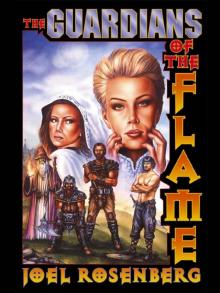 The Sword and the Chain
The Sword and the Chain Not Quite Scaramouche
Not Quite Scaramouche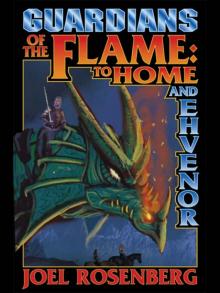 Guardians of The Flame: To Home And Ehvenor (The Guardians of the Flame #06-07)
Guardians of The Flame: To Home And Ehvenor (The Guardians of the Flame #06-07)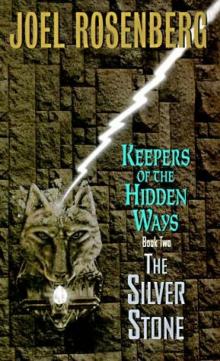 The Silver Stone
The Silver Stone Hero
Hero Not For Glory
Not For Glory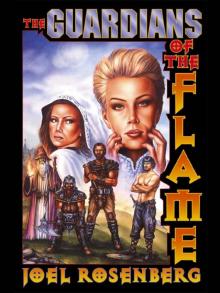 The Sleeping Dragon
The Sleeping Dragon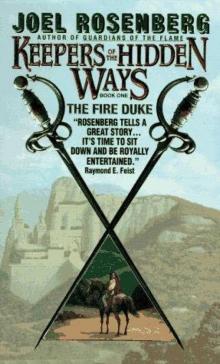 The Fire Duke
The Fire Duke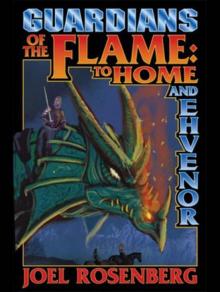 Guardians of The Flame: To Home And Ehvenor (Guardians of the Flame #06-07)
Guardians of The Flame: To Home And Ehvenor (Guardians of the Flame #06-07)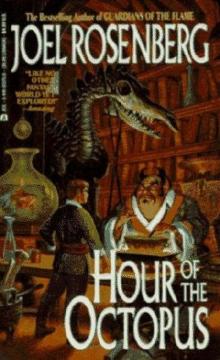 Hour of the Octopus
Hour of the Octopus Emile and the Dutchman
Emile and the Dutchman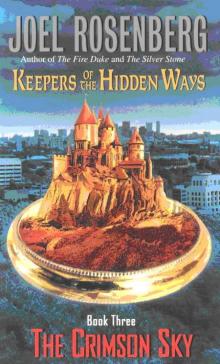 The Crimson Sky
The Crimson Sky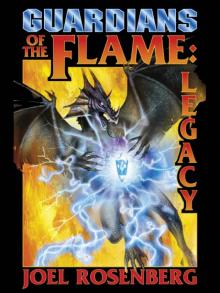 Guardians of the Flame - Legacy
Guardians of the Flame - Legacy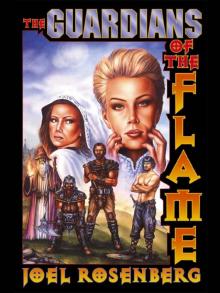 The Silver Crown
The Silver Crown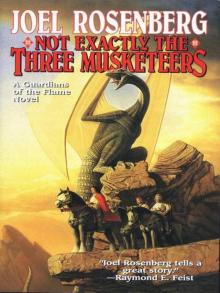 Not Exactly The Three Musketeers
Not Exactly The Three Musketeers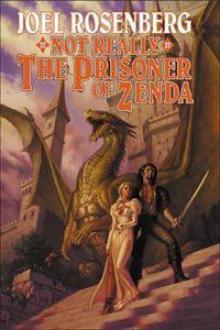 Not Really the Prisoner of Zenda
Not Really the Prisoner of Zenda